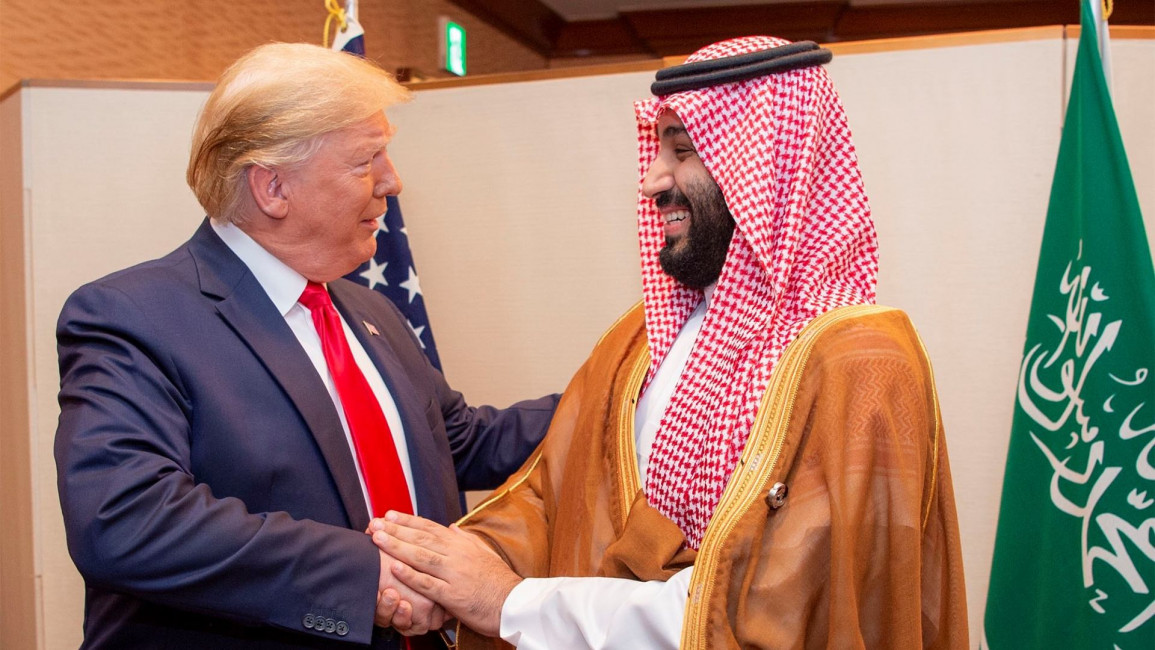Saudi Arabia among Arab nations 'expected to normalise with Israel', Trump says
Asked if he expected Saudi Arabia to follow suit, Trump said "I do. I spoke with the king of Saudi Arabia," adding it would come "at the right time."
"I think seven or eight or nine" more countries would normalise relations with Israel, he said.
The remarks came after Israel normalised relations with long-time foes Bahrain and the United Arab Emirates.
Israeli Prime Minister Benjamin Netanyahu and the foreign ministers of Bahrain and the UAE sealed the historic agreements with a signing ceremony on a flag-decorated White House lawn.
Palestinian leader Mahmoud Abbas said only an Israeli withdrawal from occupied territories can bring peace to the Middle East.
"Peace, security and stability will not be achieved in the region until the Israeli occupation ends," he said in a statement after the signing in Washington of the deals, condemned by the Palestinians as a "betrayal" of their cause.
Bahrain and the UAE are the first Arab nations to establish relations with Israel since Egypt in 1979 and Jordan in 1994 and Trump, who is hoping the deals will boost his reelection hopes, hailed it as a "historic day for peace in the Middle East."
"After decades of division and conflict we mark the dawn of a new Middle East," Trump said. "We're here this afternoon to change the course of history."
He said the agreements "will serve as the foundation for a comprehensive peace across the entire region" and "there will be other countries, very, very soon."
Netanyahu called the day a "pivot of history."
"It heralds a new dawn of peace," he said. "Ultimately it can end the Arab-Israeli conflict once and for all."
For the Mideast, the deals dubbed the Abraham Accords mark a distinct shift in a decades-old status quo where Arab countries have tried to maintain unity against Israel over its treatment of the stateless Palestinians.
Trump, speaking to Fox News ahead of the ceremony, said the agreements would put pressure on the Palestinians to also come to the negotiating table or they would be "left out in the cold."
"The Palestinians will ultimately come in too," he said.
"And you're going to have peace in the Middle East without being stupid and shooting everybody, and killing everybody, and having blood all over the sand."
Read also: Palestinians need to 'stop curses' and 'help themselves', says leading UAE diplomat
Trump predicted that Iran - a regional rival to Bahrain and the UAE - would seek to make a deal with the United States if he is reelected.
"I think they want to make a deal," he said. "I'll make a very fair deal."
All the four countries at the White House share a common hostility to Iran, which Trump has put under crippling economic and diplomatic pressure.
The thaw will also give Israel and its two new Arab partners a big economic opening, just when they are looking to rebuild after the international slowdown triggered by the pandemic.
Ahead of the signing ceremony, hundreds of Palestinians protested on Tuesday against the normalisation deals with Israel.
Clutching Palestinian flags and wearing blue face masks for protection against the novel coronavirus, demonstrators rallied in the cities of Nablus and Hebron in the occupied West Bank and in the Gaza Strip.
Several dozen pro-Palestinian demonstrators also staged a protest outside the White House as the ceremony took place.
Agencies contributed to this report.
Follow us on Facebook, Twitter and Instagram to stay connected



